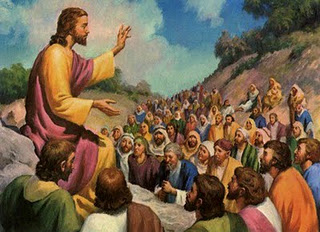Photo AI
Last Updated Sep 26, 2025
Jesus as a teacher of wisdom Simplified Revision Notes for A-Level OCR Religious Studies
Revision notes with simplified explanations to understand Jesus as a teacher of wisdom quickly and effectively.
240+ students studying
Jesus as a teacher of wisdom

Richard Dawkins: Does not reject the existence of a historical Jesus, but, completely rejects the divine nature of his existence stating instead that Jesus is simply a good moral teacher. Leo Tolsty: The Significance of Jesus' life lay in five moral commandments he gave as a moral teacher: (do not be angry, be at peace with all men, do not seek sexual gratification, do not swear anything to anyone, do not judge and show love to all people Joseph Fletcher: Fletcher's situation ethics can be used to argue that Jesus is just a teacher of wisdom as, the normative ethic is inspired by Jesus and the concept of agape love, yet, when Fletcher himself rejected Christianity later in life he did not also reject the influence of Jesus on situation ethics. This shows that Jesus can be considered simply a teacher of wisdom as even when we reject his divine nature, we can uphold his moral teaching, Barth: Jesus did teach wisdom, but, his authority in this comes from his being "true God and true man". We can use this to argue that this is why Jesus was able to recognise the ius of the law and it's superiority over the lex. The divine knowledge that Jesus has, through being God therefore was the source of his wisdom. This is particularly important given that we are currently living in a postlapsarian world and are at an epistemic distance from God, the revelation through Christ allows us to understand the will of God. McGrath: Jesus was so much more than just a teacher of wisdom. The uniqueness of Christ lay in the fact that in him, "God is revealed supremely and finally". This means that, like Barth, McGrath believes that the moral teachings from Christ hold authority because they are revealing the will of God to us, since Jesus is divine. C.S Lewis: Argues in his work 'Mere Christianity' that Jesus cannot be just a great moral teacher because no moral teacher claimed to be God like Jesus did. He writes that based on the claims that Jesus made during the incarnation: "Either he is the lord, a lunatic or a liar"
Application of scripture
Matthew 5:17–48 (sermon on the mount) Best applied to: inner purity and moral motivation Proves that Jesus is more than a teacher of wisdom because: The instructions from Jesus in the Sermon on the Mount come from a place of divine authority, proving that he has insight into the will of God which is inaccessible to humans due to the epistemic distance.
📝 E.g. "You have heard that it was said, 'You shall not commit adultery. But I tell you that anyone who looks at a woman lustfully has already committed adultery with her in his heart."
The fact that Jesus' moral guidance speaks to inner purity and the moral motivation behind your action proves that he is the Son of God and not just a teacher of wisdom because only an omniscient God would know your inner, private motivations behind our outward actions. Jesus specifying the importance of these inner thoughts indicates that he can access them.
Luke 15:11–32: Parable of the lost son Best applied to: repentance and forgiveness
Proves that Jesus is more than just a teacher of wisdom because: The symbolism in the parable of the lost son shows that Jesus provides us with insight into the will of God that he would not be able to do if he were merely a teacher of wisdom like other human guides.
The father in this parable represents God. We as sinners should repent of our wrong doing and return to the father as the lost son did. When we do this, we will be restored to the correct relationship with God.
The older brother in the story represents the religious leaders at the time who did not understand the notion of forgiveness but rather held on to personal grievances. This proves that Jesus' moral guidance here is not just about human relationships but also divine ones which only God would be able to understand.
The Church's view
The council of Chalcedon introduced the concept of the hypostatic union, propounding that Jesus is both fully God and fully human.

This therefore shows that he is more than just a teacher of wisdom. The Church of England hold that: "God has revealed himself most clearly through the gift of his Son, Jesus Christ", this leads to an obvious conclusion that the CoE believes that Jesus actions on Earth showed he was more than just a teacher of wisdom.
Catholic Church: With the Cathesism it states "In giving us his Son, his only Word (for he possesses no other), he spoke everything to us at once in this sole Word". Showing that Jesus represents the word of God thus, his moral teachings come from a place of divine authority as opposed to well-wishing advice.
500K+ Students Use These Powerful Tools to Master Jesus as a teacher of wisdom For their A-Level Exams.
Enhance your understanding with flashcards, quizzes, and exams—designed to help you grasp key concepts, reinforce learning, and master any topic with confidence!
40 flashcards
Flashcards on Jesus as a teacher of wisdom
Revise key concepts with interactive flashcards.
Try Religious Studies Flashcards4 quizzes
Quizzes on Jesus as a teacher of wisdom
Test your knowledge with fun and engaging quizzes.
Try Religious Studies Quizzes29 questions
Exam questions on Jesus as a teacher of wisdom
Boost your confidence with real exam questions.
Try Religious Studies Questions27 exams created
Exam Builder on Jesus as a teacher of wisdom
Create custom exams across topics for better practice!
Try Religious Studies exam builder25 papers
Past Papers on Jesus as a teacher of wisdom
Practice past papers to reinforce exam experience.
Try Religious Studies Past PapersOther Revision Notes related to Jesus as a teacher of wisdom you should explore
Discover More Revision Notes Related to Jesus as a teacher of wisdom to Deepen Your Understanding and Improve Your Mastery
